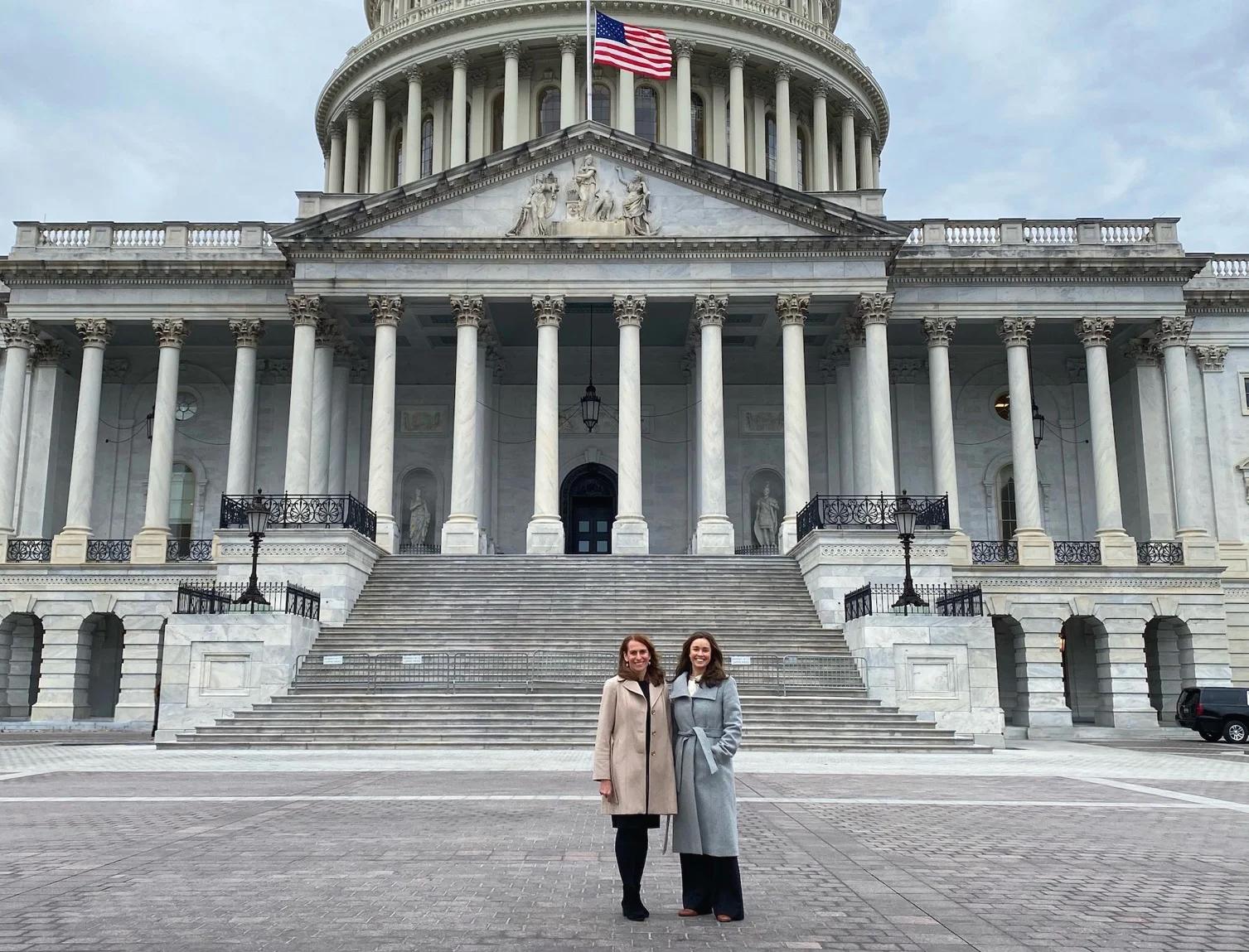The Crown Institute champions the science and practice of peer-to-peer mental health support
On Tuesday, the bipartisan Peer-to-Peer Mental Health Support Act, championed by U.S. Senators John Hickenlooper and Lisa Murkowski, cleared the Senate Health, Education, Labor, and Pensions (HELP) Committee. The bill was included as a provision in a larger

legislative package and aims to facilitate peer-to-peer mental health support programs in middle and high schools.
The Renée Crown Wellness Institute, which is dedicated to building a world where every young person thrives, has been at the forefront of studying peer-to-peer approaches to support the mental health of young people and the adults who support them. In behavioral health, peer support is a collaborative approach where individuals use personal experiences alongside professional guidance to assist and encourage each other.
In recent months, a team of experts from the Crown Institute has been engaging with legislators to discuss groundbreaking research and explore ways to enhance the study of and access to peer-to-peer models of support.
Earlier this fall, under the leadership of Professor Sona Dimidijan, PhD, Director, and Psychologist Julia Zigarelli, PhD, Associate Director, the Crown Institute worked with Senator John Hickenlooper’s team to pose a critical on the record question during a hearing focused on the mental health crisis among American youth.
“How can we leverage evidence-based peer-to-peer interventions to ensure that all young people have access to the mental health supports they need?”
U.S. Surgeon General Admiral Vivek H. Murthy, MD, MBA, responded by underscoring the pivotal role of youth as catalysts for change in behavioral healthcare.
Following the hearing, Senator Hickenlooper decided to co-lead the Peer-to-Peer Mental Health Support Act, which passed out of committee as part of S. 3393, the SUPPORT for Patients and Communities Reauthorization Act.
"We’re grateful to Senator Hickenlooper for his leadership on the Peer-to-Peer Mental Health Support Act. There is an urgent need for mental health support for young people in Colorado and across the nation. The Peer-to-Peer Mental Health Support Act is an important first step toward expanding the science of these models and increasing essential mental health support for young people,” expressed Professor Dimidijan.
Addressing Urgent Needs
The mental health provider workforce shortage and the rise in mental health struggles among young people and the adults who support them underscore the urgent need for increased access to support and effective prevention. Research from the Crown Institute supports the benefits of peer-to-peer models in increasing access, cultural responsiveness, and strengthening skills to support mental health and wellness.
By actively engaging with legislators, conducting groundbreaking research, and expanding evidence-based programs, the Crown Institute envisions a future where peer-to-peer approaches play a central role in ensuring that all young people and the adults who support them have access to mental health support.
Meeting With Legislators in D.C.
Last week in D.C., Dimidjian and Zigarelli met with legislators to further discuss peer-to-peer mental health initiatives. They emphasized the robust research at the Crown Institute, citing specific examples such as the Alma and the mind. body. voice. (m.b.v.) program.
Alma is an evidence-based peer mentoring program designed with and for new and expectant moms experiencing depression, anxiety, and stress. The program is expanding through a train-the-trainer approach, collaborating with organizations in New Jersey and California, as well as nationally with Postpartum Support International
The mind. body. voice. (m.b.v.) peer-to-peer program aims to foster body acceptance, a sense of belonging, and leadership while mitigating vulnerability to disordered eating and mental health issues among high school-aged young women. Specifically created for and with young people, college student peer facilitators play a crucial role in extending this program to young women in high school, providing them with opportunities they desire but currently lack. Programs like m.b.v. are based on evidence, and they put young people at the center, supporting one another with unique capacities and expertise.
"As the programs expand, it highlights the potential of peer-to-peer approaches to make significant impacts on mental health, cultivating a sense of community and empowerment. Our vision is to make these peer-to-peer approaches easily accessible for young people and parents worldwide," added Dimidjian.

